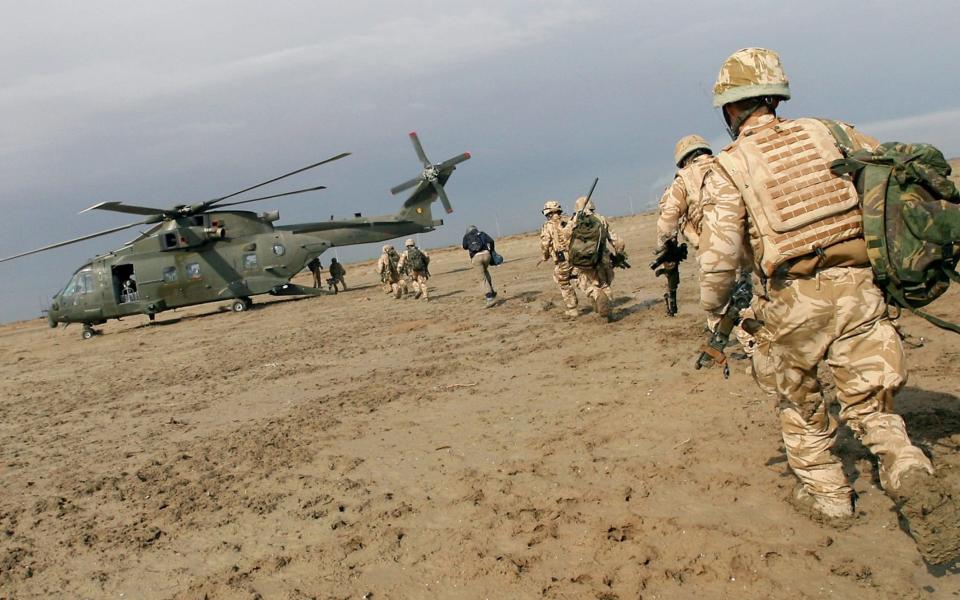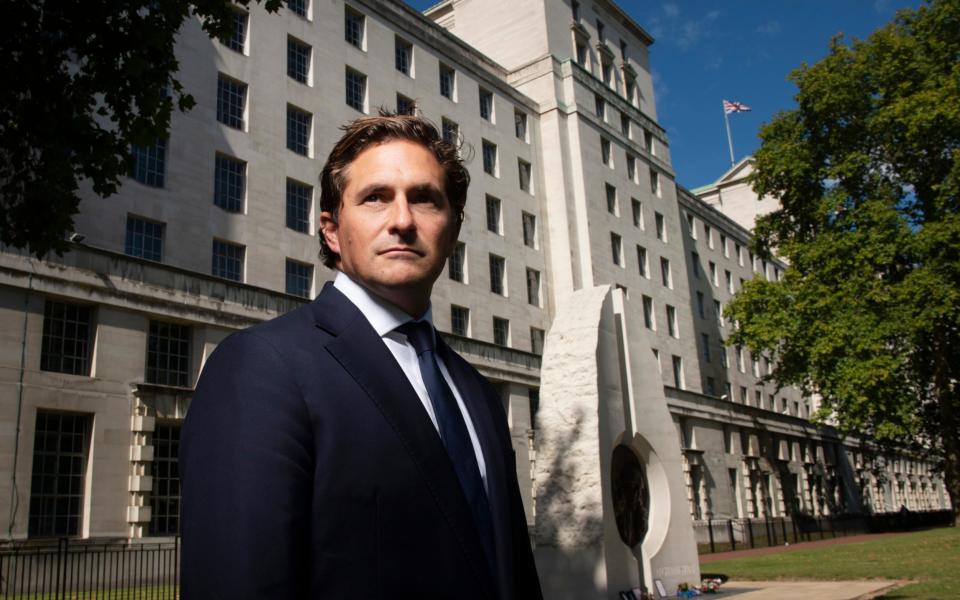Iraq War veterans welcome disclosure that not a single soldier is expected to be prosecuted

Iraq War veterans have welcomed the disclosure that not a single soldier is expected to be prosecuted over thousands of criminal allegations brought by a human rights lawyer struck off for dishonesty.
The head of the military’s prosecuting authority revealed yesterday that just one case - thought to be an allegation of unlawful killing - remained under investigation but that it was ‘quite possible’ there would be ‘zero’ charges brought against troops. Andrew Cayley, director of the director of the Service Prosecution Authority, said that all inquiries would be wrapped up ‘within weeks’.
Former soldiers welcomed the end of years of ‘anguish’ but complained that some still faced a separate non-criminal investigation into deaths, 17 years on from the invasion of Iraq. They demanded a public inquiry into how the Ministry of Defence had squandered tens of millions of pounds on vexatious claims made against their own troops.

Almost 3,500 criminal allegations - including murder and torture - were filed against soldiers serving in Iraq, the vast majority brought by Phil Shiner, a solicitor barred from practice in 2017 after being found guilty by a disciplinary panel of misconduct and dishonesty relating to false abuse claims against British troops.
Investigations by the Telegraph into Mr Shiner and the treatment of troops accused of war crimes prompted the Government in 2017 to shut down a specialist criminal unit - called the Iraq Historic Allegations Team (Ihat), set up in 2010. Ihat cost the taxpayer £57m but failed to bring a single prosecution.
But a dwindling number of troops remained under investigation and yesterday Mr Cayley said independent investigators had closed all but one of those cases. The chief military prosecutor said there was a lack of credible evidence to bring charges. He said one allegation was still under consideration, but it was "quite possible" that would be dropped as well.
Mr Cayley was also highly critical of the time taken to investigate the claims. He told the BBC Radio 4’s Law in Action programme: “There's got to be some kind of containment of this process because I think for cases to be constantly reviewed and re-reviewed over a 17 year period is not fair. There needs to be some kind of process whereby these matters are looked at properly at the time.”
Mr Cayley also said he was now confident that no action would be taken in a separate International Criminal Court (ICC) investigation into alleged abuses by British soldiers.
"My sense is these matters are coming to a conclusion; [ICC] will close the preliminary examination this year in respect of Iraq and the United Kingdom," he said.
Major Robert Campbell, who has been under near constant investigation over the death of a young man who drowned in Basra in 2003, said he was delighted that no soldier would be prosecuted.

Maj Campbell, who was decorated for bravery and wounded on active service, was investigated by Ihat before being told in December 2017 no charges were being brought. Maj Campbell remains subject, however, to an eighth inquiry into the death of Said Shabram. It is likely that a number of other soldiers now cleared by prosecutors will also be subject to further scrutiny by the Iraq Fatality Investigations, a judicial inquiry set up by the Government.
Maj Campbell said: “I am pleased the remaining cases have been shut down but the stress this has put us through has been intolerable. There needs to be a public inquiry into why tens of millions of pounds was spent investigating troops when there was no money for armoured protected vehicles in which soldiers burnt to death.”
Johnny Mercer, a former Army captain and now the Veterans Minister, who investigated Ihat when chairman of a committee of MPs leading to its closure, said: “We must make sure that we never end up in a situation like this again with Lawfare.”
He said a new Government bill to protect soldiers serving overseas from vexatious claims would prevent soldiers being subjected to witch hunts in the future.

Sir Michael Fallon, the former defence secretary who ordered Ihat’s closure in 2017, said: “This is entirely welcome. Veterans and their families have been put through years of anguish by these false allegations and it is high time it was all wound up.”
Hilary Meredith, a solicitor who represented soldiers under Ihat investigation, said: " Thousands of lives have been ruined as a result of these false claims. The Ihat probe… hounded hundreds of innocent troops over vile war crime slurs.”
General Lord Richards, former chief of the defence staff, welcomed the decision to drop the few remaining cases, adding: “If you have never experienced the huge pressures of war, it’s very difficult to understand the impact they have., Not one soldier went off to Iraq intending to do anything other than fight for his country.”
Iain Duncan Smith, the former Conservative Party leader, said: “At last common sense has finally prevailed. It was an outrage that people who had served the country to the best of their intention were hounded by first of all a corrupt lawyer and then because of political motivation by those opposed to the Iraq invasion.”

